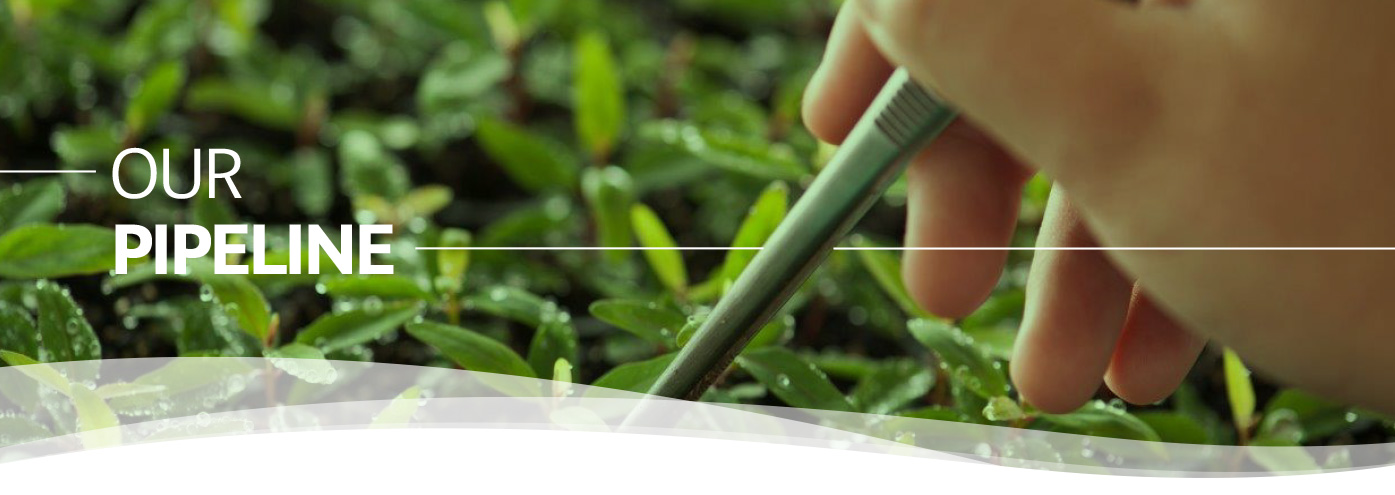YIELD ENHANCEMENT AND WOOD QUALITY
In addition to our yield-enhanced eucalyptus approved for commercial use in 2015, we are also developing additional yield enhanced products through approaches which utilize different modalities from our first product. Some of these technologies are at an early stage, whilst others are in field testing stages.
Our wood quality program is aimed at developing trees which produce high quality fiber, but require less energy and chemicals at the processing stage, thus providing significant environmental benefits. A key focus of this program has been lignin. Lignin is a polymer which gives the tree its structural strength and forms part of the vessels which transport fluids in the tree. In order to produce cellulose from wood, lignin must be removed in a process which requires significant amounts of chemicals and energy. We have succeeded in replacing some of the lignin molecules with new molecules that retain their integrity in the growing tree, but are more easily cleaved, at lower temperatures, therefore requiring less energy and less chemicals in the cellulose production process in the mill. Trees modified with this technology have successfully passed early stage field testing.
YIELD PROTECTION
In this field, we have a robust pipeline of technologies under development which include herbicide tolerance and insect resistance for eucalyptus. These technologies are aimed at lowering chemical usage, improving yields by averting damage caused by herbicide drift in weed control operations, preserving soil structure through decreasing vehicle passage in plantations, decreasing defoliation and other damage caused by insect pests in the plantations and improving labor conditions. Products in these areas are in advanced stages of development prior to being submitted for regulatory approval.

